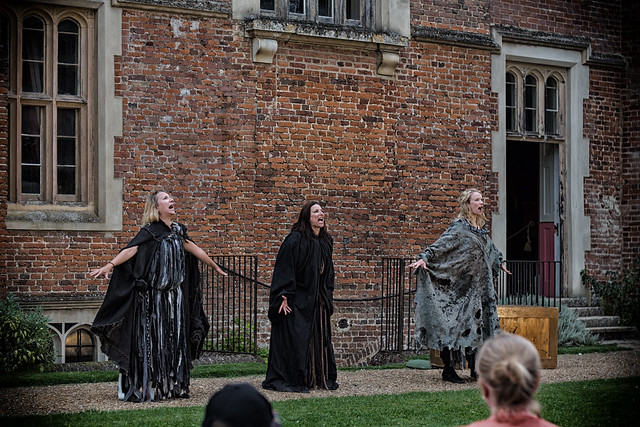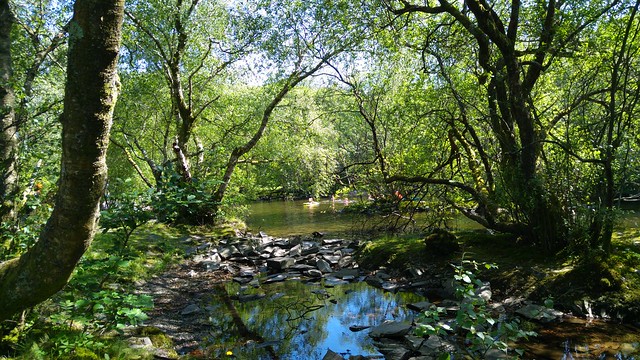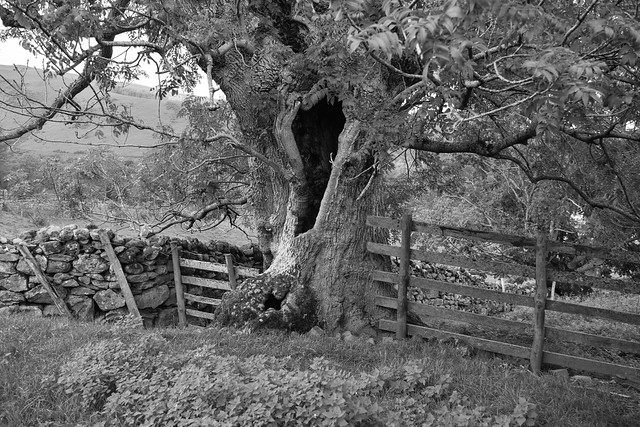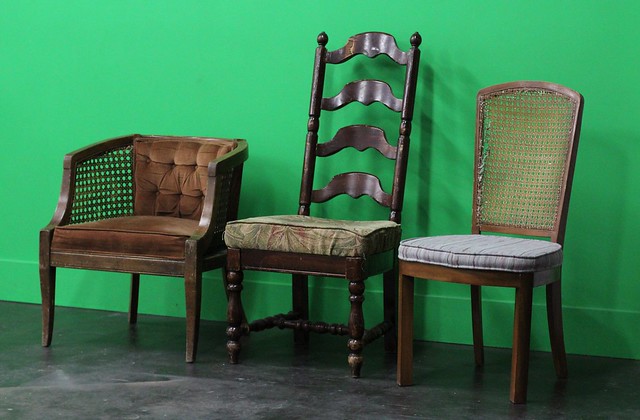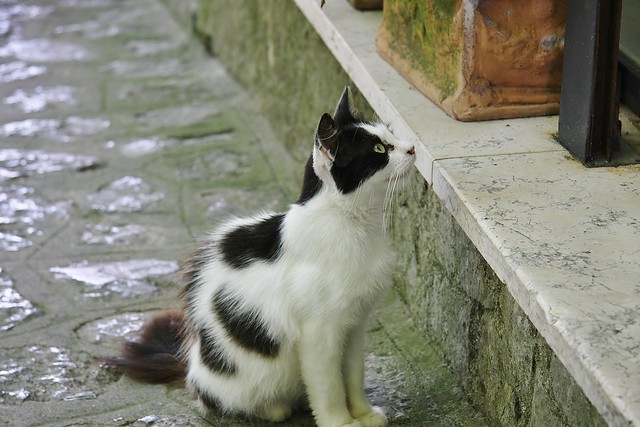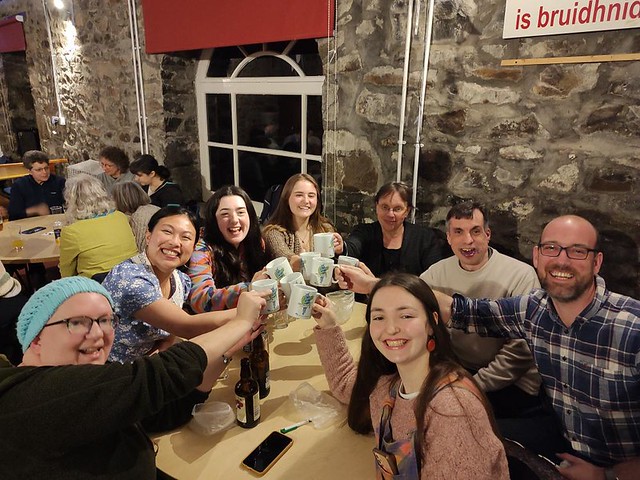Podcast: Play in new window | Download
In this adventure we’re unwinding the origins of the word weird.
As an adjective weird means:
- Having an unusually strange character or behaviour.
- Deviating from the normal; bizarre.
- Of or pertaining to the Fates (archaic)
- Connected with fate or destiny; able to influence fate (archaic)
- Having supernatural or preternatural power (archaic)
As a noun weird means:
- Weirdness
- A prediction
- That which comes to pass; a fact
- Fate; destiny; luck (archaic)
As a verb weird means:
- To destine; doom; change by witchcraft or sorcery.
- To warn solemnly; adjure.
It comes from Middle English werd (fate, destiny), from Old English wyrd (fate), from Proto-West-Germanic *wurdi (fate, destiny), from Proto-Germanic *wurdiz (fate, destiny), from PIE *wert- (to turn) [source].
By the 16th century weird was obsolete in English, though it contained to be used in Scots. It was reintroduced to English by Shakespeare, who called the three witches in Macbeth the Weird Sisters.
In Scots weird means fate, fortune or destiny, and various other things, and tae dree your weird means to follow your destiny, to make what you can of your lot, or to suffer the consequences of your action [source].
Words from the same roots as weird include retain, verse, vortex and worth in English, Wert (value, worth) in German, gwerth (value, worth) in Welsh, worden (to become, get, grow, turn) in Dutch, and verða (to become, have to, must) in Icelandic [source].
I also write about words, etymology and other language-related topics on the Omniglot Blog, and I explore etymological connections between Celtic languages on the Celtiadur.
You can also listen to this podcast on: Apple Podcasts, Amazon Music, Stitcher, TuneIn, Podchaser, PlayerFM or podtail.
If you would like to support this podcast, you can make a donation via PayPal or Patreon, or contribute to Omniglot in other ways.
Radio Omniglot podcasts are brought to you in association with Blubrry Podcast Hosting, a great place to host your podcasts. Get your first month free with the promo code omniglot.
